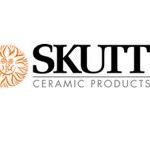Podcast: Play in new window | Download
Andi Hoffmann | Episode 687
Andi Hoffmann started her journey with clay in 2013, taking a local pottery class and getting her hands messy in lots of drop in studio hours. After studying biology and conservation science at the University of Victoria, Andi combined her love of nature with her love of art and started Hoff the Grid Goods in 2017. Working out of a small studio in Victoria, BC, Canada, Andi creates west coast, nature-inspired functional ceramics, where each design tells a story. Andi’s hope is that her work inspires mindful, compassionate living.
SPONSORS
 You can help support the show!
You can help support the show!

Number 1 brand in America for a reason. Skutt.com

For all your ceramic needs go to Georgies.com
Before you became a ceramicist you were a science major out of wanting to protect nature. Am I remembering that correctly?
Yes, definitely. I think that is always something that is on my mind as I work and within my regular life too, for sure.
So you chose ceramics over science and part of the draw toward science was sustainability of our environment. I am curious about on your website it says, Ceramics sustainably made. I am curious. How can a potter be sustainable?
Well, I think that the main thing that comes to mind is reusing. So one of the cool things about clay and glaze ingredience is there are so many ways that you can continue reusing them. So like, collecting. your clay trimmings and reconstituting them and wedging them back up and throwing more things with them, You can just constantly come up with no waste when it comes to clay. So for me, I like to collect my throwing water and my trimmings and you can skim off the water from that after you have let it sit for a few days and you can use that water to re-throw with, Or if you can’t use it anymore you can use it to water plants. Or anything like that it ‘s just kind of like anything you can reuse you do. For glazes too, usually when I am making glazes or mixing them or putting glazes on my items I always have a big bucket that has some water in it and then I will rinse off all of my tools and then wipe off excess glaze with a sponge and make sure all that excess glaze ingredience is going into that bucket and then it’s really fun because once that gets full you can do some tests with that mixture and all the random assorted glazes can create a new glaze. So it becomes a random experiment and sometimes things work out and sometimes they don’t but it’s a great way to kind of reuse things.
Do you think that local made products are better than mass produced products being shipped in other countries?
I think, yes, absolutely, If there is a way to get materials that you need for those items as locally as possible then absolutely, for sure.
From a science perspective, why is that important?
As soon as you can decrease the amount of time and distance that you are bringing things in then obviously it is going to have less of an impact on the environment at least with emissions and costs associated with those emissions. Anytime you can choose hand-made and local especially is always your best bet.
How does hand-made enrich people’s lives?
I think for sure because you actually know that the item you are holding was made from human being whose livelyhood depends on you supporting them. So there is this act of reciprocity that kind of goes with that.
What products do you go specifically looking for that are made by other local makers in your area?
I have an obsession with handmade wooden spoons. So anytime that I can find someone who is a whittler or uses a lathe to turn bowls or anything like that that is for sure my go to. Especially there are a lot of folks in town-they will collect wood from trees that have fallen over in storms or if a tree has to get cut down if it’s an issue of safety-like it’s going to fall on someone’s house, usually there is an artist there who can use the wood for some sort of creative endeavor. So that is another aspect of the sustainable life.
Book
Braiding Sweetgrass by Robin Wall Kimmerer
Contact
Instagram: @hoffthegridgoods



 GRPotteryForms.com
GRPotteryForms.com









